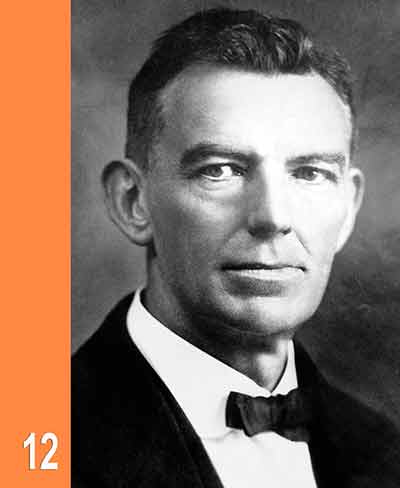James I. Finney
Induction Year:¬Ý1971
Lived:¬Ý1877-1931
Papers:
McMinnville New Era; The Daily Herald, Columbia
Nashville American; The Tennessean, Nashville
James I. Finney--social commentator, historian, public servant, editor and publisher--began his newspaper career on the McMinnville New Era soon after he returned from the Spanish-American War.
In 1904 he went to Nashville as a political reporter for the Nashville American, and three years later he became city editor of the Nashville Tennessean. But he left that newspaper after six months when he was offered the editorship of the Daily Herald at Columbia.
During his 19 years as editor and later publisher of the Herald Finney established his reputation as a writer and commentator on life in Tennessee. His editorials against the anti-evolution law in 1925 are still considered models of clear, concise comment on one of the most emotional issues in the state's history. And he generally is credited with helping leaders of the prohibition movement drive saloons from the state and rid state government of the influence of the liquor interests.
In 1926 he gave up the editorship of the Herald to his son and returned the Nashville Tennessean as editor-in-chief. Although he identified himself with the life of the capital city and served in numerous civic capacities there, he preferred to return to his farm by train each afternoon.
As a supporter and adviser of Governor Austin Peay, Finney aided in starting Tennessee on an era of public school expansion and public road development. He wrote a history of the Tennessee Public School System and later served on the University of Tennessee Board of Trustees.
Finney was elected president of the Tennessee Press Association in 1912. He was highly respected by his colleagues for his views on ethical and professional standards for the press.
